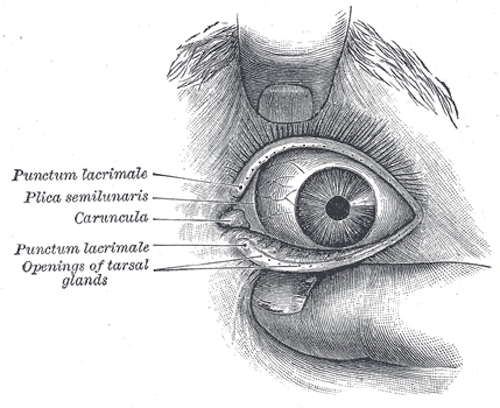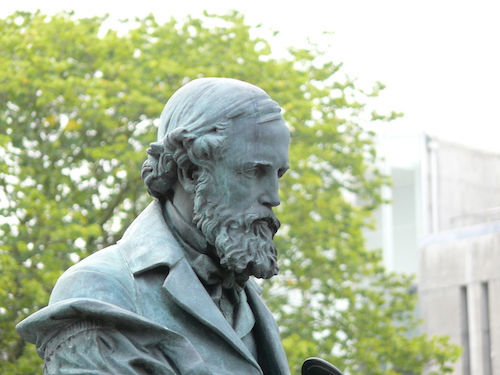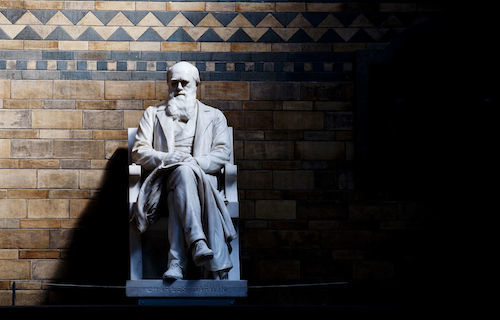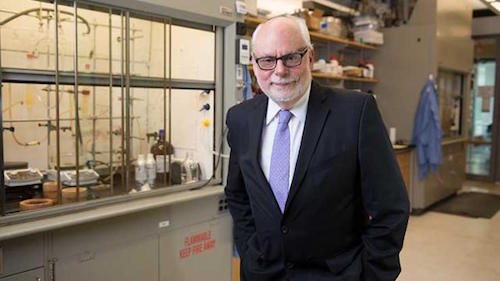Discovery Institute's Blog, page 18
December 8, 2016
An Evolutionary Explanation for Higher Rates of Birth by Caesarian Section?

Researchers writing in the Proceedings of the National Academy of Sciences contend that higher rates of babies being delivered by Caesarian section have an evolutionary explanation. The BBC reports:
Caesarean births 'affecting human evolution'
The regular use of Caesarean sections is having an impact on human evolution, say scientists.
More mothers now need surgery to deliver a baby due to their narrow pelvis size, according to a study.
Researchers estimate cases where the baby cannot fit d...
LSU Ophthalmologist Commends a "Design Approach" in Appraising Supposedly Vestigial Organs

Sometimes when our worldview is wrong, we miss important things. The Darwinian point of view in particular may lead to false assumptions. A doctor, Alan B. Richards, who teaches at the Health Sciences Center at Louisiana State University, writes to us with an example. He describes a part of the eye that many consider to be vestigial, that is, an evolutionary holdover from the past that now supposedly serves no function. He points out that viewing the tissue in question as vestigial can lead...
Best of Behe: An Open Letter to Professors Kenneth Miller and PZ Myers
Editor's note: In celebration of the 20th anniversary of biochemist Michael Behe's pathbreaking book Darwin's Black Box and the release of the new documentary Revolutionary: Michael Behe and the Mystery of Molecular Machines, we are highlighting some of Behe's "greatest hits." The following was published here on July 21, 2014. Remember to get your copy of Revolutionary now! See the trailer here.
Dear Professors Miller and Myers,
Talk is cheap. Let's see your numbers.
In your recent post on a...
Post-Darwin, James Clerk Maxwell's Views Presaged Modern Arguments for Intelligent Design

Yesterday, we considered the pre-Darwin views of the towering physicist, who lived from 1831 to 1879, thus straddling Charles Darwin's own period of scientific activity and publishing. The Origin of Species appeared in 1859. In 1860, Maxwell returned to London for a professorship at King's College, where he met Faraday. For the next decade, he devoted himself to his great work on undergirding Faraday's empirical work with solid mathematical physics, climaxing in his 1873 Treatise on Electric...
December 7, 2016
Naval Academy Philosopher: Laypeople Are Entitled to an Opinion on Science Questions

This sounds more than a bit like Douglas Axe. It's a presentation given at the Conference of the Society for Philosophy of Science in Practice this past June by Larry Lengbeyer, Associate Professor of Philosophy at the U.S. Naval Academy. The talk, "Defending Limited Non-Deference to Science Experts," explains logically why laypeople are not barred from disagreeing with scientists.
Of special interest is the section defending disagreement based on a perception of "untrustworthy science." Le...
Fact-Check: Austin, TX, Newspaper Bungles Description of Discovery Institute; Reporter Won't Correct Record

We've tangled with the Austin American Statesman in the past. Now the Texas paper is back, misrepresenting Discovery Institute. In her article, "Creationism at Center of Debate Over High School Biology Curriculum," Madlin Mekelburg notes:
Jonathan Witt, a fellow at the Discovery Institute, a creationist think tank, told the board he found the committee's intent behind removing the four standards to be questionable... [Emphasis added.]
Discovery Institute is an intelligent design think tank -...
Pre-Darwin, James Clerk Maxwell's Design Argument Foreshadowed Modern ID Theory

It's been years since we looked into Maxwell's argument for design. In 2012, we posted one of his poems that devastated naturalism with satirical wit. Michael Flannery has written an excellent piece on Maxwell's design argument from the unity of nature, and discussed its relation to the modern ID movement. Professor Flannery focused primarily on refuting the misleading statements of historian Matthew Stanley, who had misrepresented the comparisons and contrasts between Maxwell and Behe.
We t...
December 6, 2016
Behe: Nobel Prize for Chemistry Begs the Question of Intelligent Design

The 2016 Nobel Prize for Chemistry recognized the intelligent design (what else would you call it?) of artificial molecular machines. These "nano" machines are impressive as technical achievements. Yet they are also exceedingly simple, "cute" but "useless," as Nature reported that "some chemists" say. "We need to convince [researchers] that these molecules are really exciting," as one scientist remarked.
Writing at CNSNews, Discovery Institute biochemist Michael Behe makes the point that Dar...
Evolving Protein-Protein Binding -- Not a Problem?

Dennis Venema is a Fellow of Biology with BioLogos, where he writes a series of posts called "Letters to the Duchess" -- an allusion to Galileo's "Letter to the Grand Duchess Christina." In the past, I have looked at Professor Venema's articles on evidences for common descent (see here, here, here, here, here, and here).
In a recent online discussion with Venema, he made the erroneous claim that the mammalian immune system, with its search for, and production of, antibodies, is a good examp...
Newfound Genetic Code-in-Code Regulates Stress Response

There are 64 combinations in the genetic code (43), because there are four bases arranged in threes. Each triplet codon codes for one amino acid, of which there are 20 normally used in proteins. This mismatch of 64 versus 20 has been called degeneracy, and has long been a mystery. Some amino acids have a single codon, but others can be coded by up to six codons. Is this redundancy just a "frozen accident," as Francis Crick thought? Could there be functional reasons why a gene would specify o...
Discovery Institute's Blog
- Discovery Institute's profile
- 15 followers




